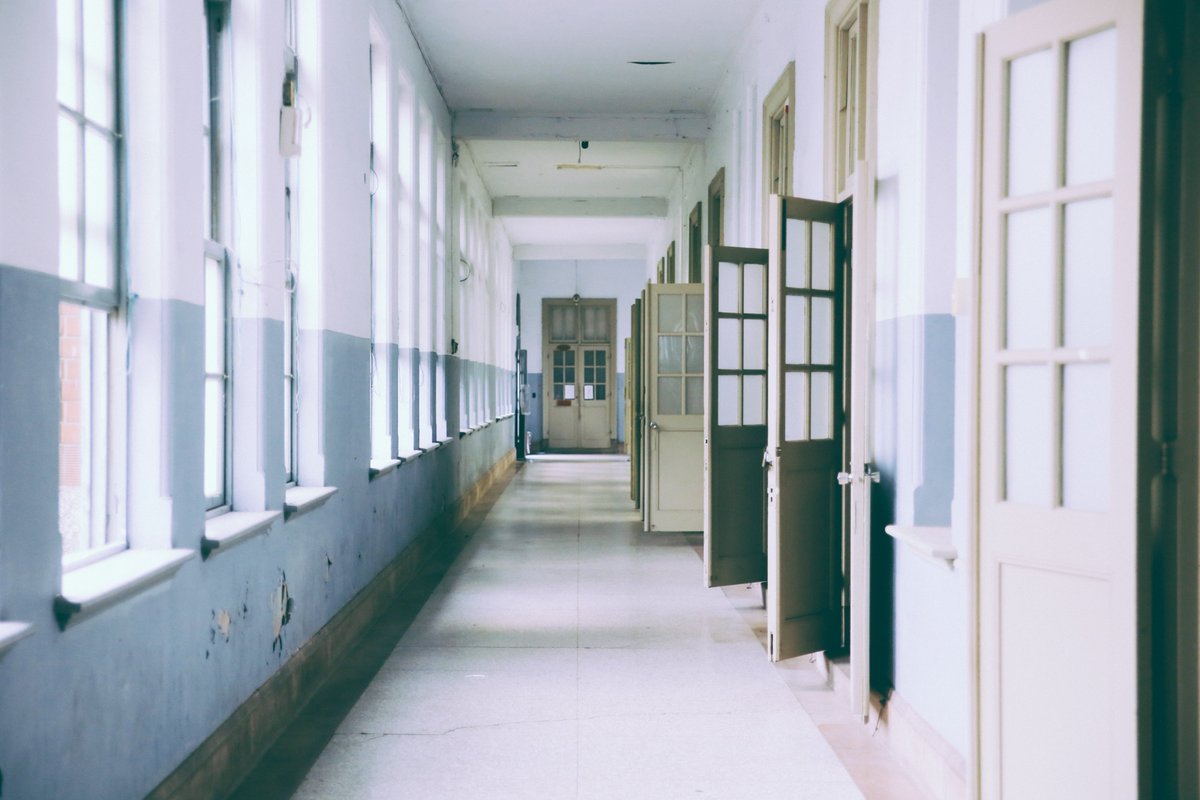Learning to learn or learning disabled? (Thread)
In my first year as a Consultant, one parent refused her child to be seen by me due to the colour of my skin. & #39;Indians are too focussed on education and wouldn& #39;t understand the trauma my child is going through in school& #39;.
In my first year as a Consultant, one parent refused her child to be seen by me due to the colour of my skin. & #39;Indians are too focussed on education and wouldn& #39;t understand the trauma my child is going through in school& #39;.
Of course, I treated the child and (hopefully) dispelled her stereotype of what an Indian Doctor thinks about children not attending school.
More than a decade later and after noticing that many of my patients are actually doing well out of school (which are shut due to COVID),
More than a decade later and after noticing that many of my patients are actually doing well out of school (which are shut due to COVID),
I am starting to re-think education.
Many (?most) of my patients are complex ones who are either in the care of the Local Authority or have offended or are at risk of offending. Many of them attract a diverse range of diagnoses (?) and hence are identified as & #39;disabled& #39;.
Many (?most) of my patients are complex ones who are either in the care of the Local Authority or have offended or are at risk of offending. Many of them attract a diverse range of diagnoses (?) and hence are identified as & #39;disabled& #39;.
Some may have a learning disability, ADHD, Autism and so forth.
Yet, their transformation in the COVID school shutdown has been amazing and inspiring.
One of my patients is helping his granddad out with doing stuff around the house.They have done the bathroom, garden and are
Yet, their transformation in the COVID school shutdown has been amazing and inspiring.
One of my patients is helping his granddad out with doing stuff around the house.They have done the bathroom, garden and are
now taking up a third project. Granddad commented on noticing a & #39;different& #39; side since the lad lost his parents. He struggles with social contact in school but the social isolation has been a boon to his self-esteem.
Another of my patients has taken up writing stories of animals who have been imbibed with human emotions that my patient experiences.
& #39;Writing lets me get my emotions out and makes me feel calmer& #39;. This, from a child, who has been excluded multiple times from various schools.
& #39;Writing lets me get my emotions out and makes me feel calmer& #39;. This, from a child, who has been excluded multiple times from various schools.
There are countless more stories like these. Fundamentally, we are trying to lump all children with varying abilities into a system that fails to distinguish their strengths. This is painful - for now and the future.
Is there another way?
I believe there is.
Inspired by @Sugatam & #39;s School in the Cloud and being aware that & #39;learning to learn& #39; is better than & #39;learning disabled& #39;; I am left wondering if there is scope for those setting the curriculum for school years
https://www.theschoolinthecloud.org/ ">https://www.theschoolinthecloud.org/">...
I believe there is.
Inspired by @Sugatam & #39;s School in the Cloud and being aware that & #39;learning to learn& #39; is better than & #39;learning disabled& #39;; I am left wondering if there is scope for those setting the curriculum for school years
https://www.theschoolinthecloud.org/ ">https://www.theschoolinthecloud.org/">...
transform that curriculum into a series of questions that children who find school traumatic can find answers to?
Ofsted& #39;s new approach to inspection (see @DavidDidau blog https://abs.twimg.com/emoji/v2/... draggable="false" alt="👇" title="Rückhand Zeigefinger nach unten" aria-label="Emoji: Rückhand Zeigefinger nach unten">) may well lend itself to the & #39;curiosity& #39; inspired approach. https://tinyurl.com/y6vlyy7d ">https://tinyurl.com/y6vlyy7d&...
https://abs.twimg.com/emoji/v2/... draggable="false" alt="👇" title="Rückhand Zeigefinger nach unten" aria-label="Emoji: Rückhand Zeigefinger nach unten">) may well lend itself to the & #39;curiosity& #39; inspired approach. https://tinyurl.com/y6vlyy7d ">https://tinyurl.com/y6vlyy7d&...
Ofsted& #39;s new approach to inspection (see @DavidDidau blog
More importantly, we need to devise ways in which everyday tasks that children are interested in, can be potted into a curriculum that can be devised as & #39;curious questions& #39; that & #39;reveal& #39; answers through their own research.
For example, growing a simple tomato plant can lead to learning of maths, science, geography and history. The same can be applied to learning cooking and even woodwork!
The question is - who will accept this challenge?
[Thread ends]
The question is - who will accept this challenge?
[Thread ends]
If you want to read this in one block, you can have a look here: https://www.linkedin.com/pulse/learning-learn-disabled-girish-vaidya/">https://www.linkedin.com/pulse/lea...

 Read on Twitter
Read on Twitter



